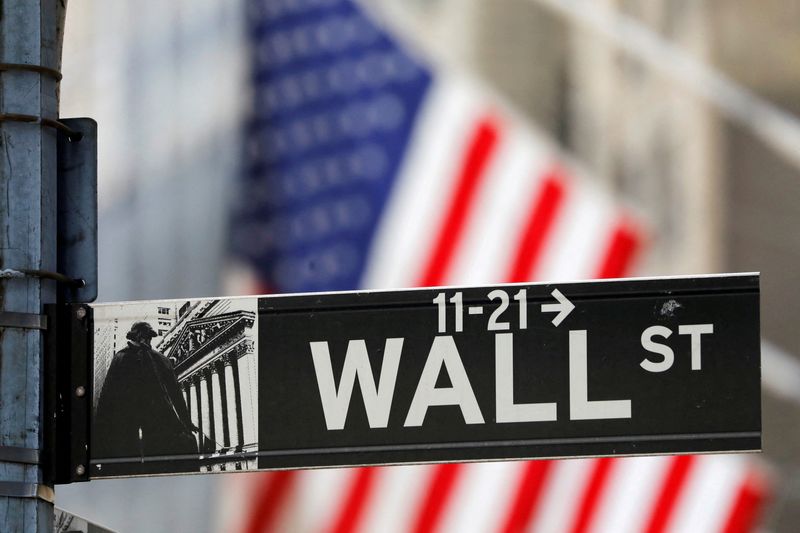Louis Krauskopf
NEW YORK (Reuters) – U.S. stocks are so valuable that investors have little tolerance for disappointment, and stakes are rising ahead of a week of announcements from two technology and growth giants.
The S&P 500 index posted its biggest weekly gain since early November, following a 5% decline for the first time this year, following positive reports Thursday from Microsoft and Google's parent company Alphabet. The S&P 500 index is up about 7% in 2024, and about 24% since late October.
However, investors punished Metaplatforms for its disappointing forecasts. Shares of Facebook's parent company fell more than 10% on Thursday following the report. Shares of industrial bellwether Caterpillar fell 7% after the sales warning.
More broadly, S&P 500 stocks that beat analyst profit estimates this quarter outperformed by a median of just 0.2 percentage points, according to JPMorgan strategists. By contrast, stocks of companies that missed earnings estimates lagged by a median of 4%, the largest underperformance in at least eight years.
Rick Meckler, a partner at Cherry Lane Investments, said the earnings report was “pretty good.” But “those who miss out in any way will pay a pretty heavy price.”
The so-called “Magnificent Seven” group of companies that boosted the market last year are expecting further gains next week. Amazon will report on Tuesday and Apple on Thursday. On Wednesday, the Fed will issue its latest monetary policy statement after two days of meetings.
Some believe that the market's largely unabated rally over the past six months has made it harder for investors to tolerate a pullback in profits. According to LSEG Datastream, the S&P 500 Index's forward P/E ratio is 20 times, well above the historical average of 15.7 times.
“Given the strong stock price and tight positioning heading into the fiscal year, it is possible that a large potential earnings upside may not translate into upside for the stock during the fiscal year,'' JPMorgan strategists wrote. I warned you that there would be…” “Certainly, the reaction in U.S. stock prices has not been overwhelming so far.”
Tesla stock rose 12% earlier in the week after the company announced it would introduce a new model by early 2025. Some investors are blaming low-price hunting after this year's painful sell-off, leaving their bar for receiving good news much lower. Tesla stock remains down more than 30% since the beginning of the year.
Rising U.S. Treasury yields could be another factor. Because investors can earn higher rewards from risk-free government debt, when bond yields rise, analysts' models discount companies' expected future profits more deeply. The benchmark 10-year Treasury yield hit 5.74% this week, its highest level since early November, as evidence grew of stronger-than-expected inflation.
But overall, 78% of S&P 500 companies beat revenue estimates for the first quarter, with profits on track to increase 5.6% year-over-year, LSEG IBES said Friday.
Chuck Carlson, CEO of Horizon Investment Services, said strong corporate performance has become increasingly important as rising U.S. Treasury yields and stubborn inflation increase uncertainty in stock prices. Ta.
Mr. Carlson said corporate profits “are at a level that supports the market and overcomes some volatility in the inflation and interest rate environment.”
If bond yields continue to rise or inflation statistics remain stronger than expected, returns could be delayed. Investors don't expect the Fed to take any interest rate policy action at next week's meeting, but they will listen to the Fed's insights on recent evidence of stronger-than-expected inflation.
Expectations for interest rate cuts, which had been a key driver of the economic rise, have receded on signs of economic strength and persistent inflation. Futures markets on Friday showed investors were pricing in just 35 basis points of interest rate cuts in 2024 (up from more than 150 basis points in January).
“Earnings are strong, but the market is more concerned about inflation and what the Fed will do about it,” said Scott Wren, senior global market strategist at Wells Fargo Investment Institute. Ta.
(Reporting by Louis Krauskopf; Editing by Ira Iosebashvili and David Gregorio)


